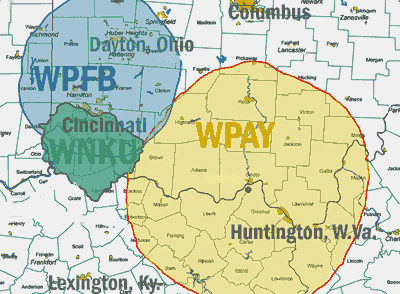Author: Karen Everhart
Karen Everhart is managing editor and interim executive director of Current, supervising the editorial and business teams, freelance contributors, designers and student interns. As a reporter and senior editor over two decades, she covered every major beat — public TV, CPB, public radio and the evolution of public media's digital service strategies. After her promotion to managing editor in 2012, she helped lead Current's transition to digital-first publishing. Karen was appointed interim E.D. in April 2025.
With $6.75 million purchases, WNKU triples its reach
The station is buying two country-music outlets in southern Ohio.January 24, 2011In Pittsburgh, a broker turns operator
News/jazz WDUQ-FM will be sold to a joint partnership between another Pittsburgh pubradio station, WYEP, and a new local nonprofit established by ...January 24, 2011For LPFMers, radio act brings ‘a ton of joy’
Low-power FM advocates are celebrating a hard-won victory with enactment of the Local Community Radio Act, approved in the last days of ...January 10, 2011Fight over NPR funding: is it a “culture war,” or principled debate?
What’s really at stake in the battle over federal funding to NPR, and how can the field’s advocates make the best case ...November 22, 2010NPR Board hires counsel to probe what went wrong
Reacting to NPR’s abrupt image makeover — from ascendant news organization to partisan punching bag — the network’s board last week hired ...November 15, 2010NPR’s Juan Williams fired for one too many opinionated comment
NPR President Vivian Schiller has apologized to public radio for how she and her executives handled last month’s dismissal of news analyst ...By Mike Janssen and Karen EverhartNovember 1, 2010NPR sets a goal: add 100 reporters to statehouse beats
A multiyear initiative led by NPR, Impact of Government, eventually will put two additional state-level reporters to work in each of the ...November 1, 2010Under-explained firing makes NPR an issue just in time for election
Top NPR officials may have thought their Oct. 20 decision to dismiss veteran journalist Juan Williams was about journalistic objectivity, but to ...November 1, 2010NPR fires news analyst Juan Williams
NPR fired news analyst Juan Williams late yesterday over comments he made about Muslims during an Oct. 18 appearance on Fox News. ...October 21, 2010Study sees growth if NPR loosens up, sounds less elite
A new study for NPR identifies a much bigger potential news audience for public radio if producers craft shows to be ...September 20, 2010Misspending seen, but IG doesn’t hit board diversity
KABF, the Arkansas community radio station audited by CPB’s Office of the Inspector General last year after a whistleblower complaint, may be ...September 7, 2010Houston’s KUHF pursuing dual-service strategy with purchase of KTRU
Houston’s KUHF-FM plans to buy KTRU 91.7 FM, a 50,000-watt student radio station owned by Rice University, and convert it to a ...August 17, 2010‘Snap Judgment’: latest in harvest from ’07 Talent Quest
Snap Judgment, one of three new shows conceived from the CPB-backed Public Radio Talent Quest, has become a whirlwind of multimedia production with the ...August 9, 2010Schedule: web platform model by year’s end
An NPR-led project this month officially launched planning for a joint Public Media Platform to put public radio and TV content on ...June 21, 2010Gov’t officials critical of nonprofit Friends units
Nonprofit fundraising arms of the state-owned network in West Virginia and the school-board-operated stations in Miami are under fire as public officials ...June 21, 2010





